Search Results
Showing results 1 to 20 of 57

Clean Water: Is It Drinkable?
Source Institutions
In this activity, learners simulate nature's water filtration system by devising a system that will filter out both visible and invisible pollutants from water.

The Water Cycle
Source Institutions
Did you know that the water we use today is the same water found on Earth millions of years ago? The Earth constantly uses and recycles water in a process called the water cycle.
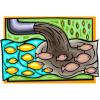
Storm Water Runoff Pollution
Source Institutions
This activity (located on page 8 of the PDF) introduces learners to the concept of Non-point Source Pollution--what happens when rain washes garbage and other pollutants into rivers and lakes.

Water Treatment
Source Institutions
Water treatment on a large scale enables the supply of clean drinking water to communities.

Make a Wire Critter That Can Walk on Water
Source Institutions
In this activity, learners make water-walking critters using thin wire, and then test how many paper clips these critters can carry without sinking.
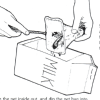
Water Holes to Mini-Ponds
Source Institutions
Dig a hole, line it, fill it with fresh water, and you have a water hole: a good place to study colonization.

Can Nutrients in Water Cause Harm?
Source Institutions
In this water pollution activity, learners create pond water cultures and investigate the effects of adding chemicals or natural nutrients.
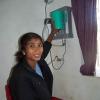
Straining Out the Dirt
Learners take on the role of environmental engineers as they design water filters.

Differing Densities: Fresh and Salt Water
Source Institutions
In this activity, learners visualize the differences in water density and relate this to the potential consequences of increased glacial melting.
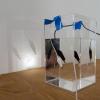
Convection Current
Source Institutions
In this activity, learners make their own heat waves in an aquarium.
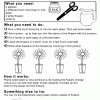
Find Out How Plants Use Water
Source Institutions
In this activity, learners investigate how plants use water. By making the flowers change color, learners see how water moves up the stem to the leaves and the flowers.
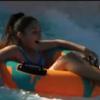
Science at the Waterpark!
Source Institutions
This activity (on page 2 of the PDF under SciGirls Activity: Water Slides) is a full inquiry investigation into speed and motion and takes place at a water park.
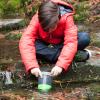
Window Under Water
Source Institutions
Glare from the sun and ripples from the wind can make it hard to see what's below the surface of a body of water.
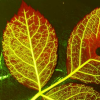
Lighting Up Celery Stalks
Source Institutions
In this activity, learners conduct a series of hands-on experiments that demonstrate how the working of plants' veins, known as capillary action, enables water to travel throughout the length of a pla
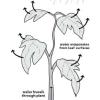
Plant Piping
Source Institutions
Learners build models to learn about the special cells and structures that plants use to move water from their roots up through the stems and leaves.

Forces at the Nanoscale: Nano Properties of Everyday Plants
Source Institutions
This is an activity (located on page 3 of PDF under Nasturtium Leaves Activity) about surface tension.

Freezing Lakes
Source Institutions
In some parts of the world, lakes freeze during winter. In this activity learners will explore water’s unique properties of freezing and melting, and how these relate to density and temperature.

School of Fish
Source Institutions
In this activity, learners will make fish cutouts that propel through the water with the help of surface tension.
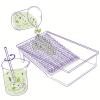
Wetland Filter Model
Source Institutions
In this quick activity (located on page 2 of the PDF under GPS Wetlands Activity), learners will model how wetlands act as natural filters for the environment.
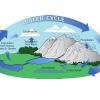
Moving Without Wheels
In a class demonstration, learners observe a simple water cycle model to better understand its role in pollutant transport.
